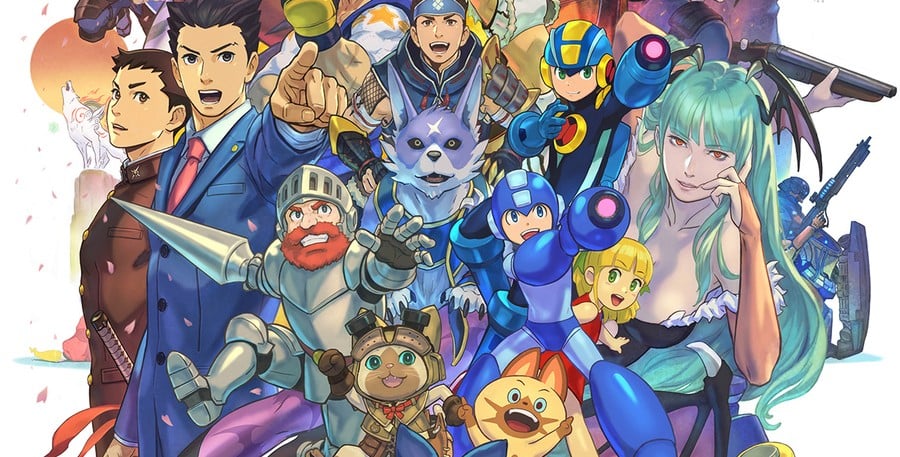
Update []: Since this piece was originally published, Joseph Redon of the Japanese Games Preservation Society—who attended the event mentioned—has voiced the opinion that initial reports were, in his eyes, a "fabrication" and that no solid pledges were made by any of the companies present to preserve their history.
Here's what Redon told us:
The GPS was there. It's our job to be everywhere when there is game preservation. The reality was a bit different. They had some documents on display, which were wonderful. There was a short 90-minute talk, 15 minutes for each of the four, with a Q&A. What they mostly said was: they cannot do preservation, they do not do preservation, and they will not be doing it. Only Capcom does some internally for its marketing teams. The Sega representative said he wants to, but management forbids it—they only preserve material if they can make money. The English coverage makes you think those four companies teamed up to do a great thing. It's a fabrication that never happened.
Redon made the comments in a feature about the long-term future of the GPS, which is in grave doubt.
Original Story: Square, Capcom, Taito, and Sega are all making steps towards archiving their past, according to a recently resurfaced SIGGRAPH Asia talk from last December.
Despite almost being five months old at this point, this talk only recently came to our attention thanks to a social media post from the former Software Creations and TT Fusion developer KevEdwardsRetro, who spotted a write-up of the talk (in Japanese) from Gamemakers.jp.
This eventually went viral on social media, leading the talk being picked up by a few Western publications, including GamesIndustry.Biz which recently published an article about the promising steps each company is taking to preserve its past.
In the talk, entitled "The Cutting Edge of Preservation," a group of individuals including the Square Enix lead AI researcher Youichiro Miyake, Capcom digital content archive team producer Yasuyuki Makino, Sega producer Yosuke Okunari, and Taito producer Yuichi Toyama all spoke about what they are doing to save materials from their companies past.
Miyake, for instance, went over the work being done as part of Square Enix's SAVE project, which originally started back in Spring 2020 and was previously the subject of a talk at CEDEC 2022 (which we detailed here).
Similar to that talk, he went over how the team started preserving the company's vast archives, before talking about its internal and external applications. In doing this, he stated that some of this data had already appeared at various conferences and events, including SIGGRAPH ASIA in 2021, with the goal of these showcases being to make these archival efforts more widely known and to encourage other companies to start their own similar initiatives.
Yasuyuki Makino from Capcom, meanwhile, spoke about the Capcom Illustrations Archive System, which is an internal initiative being used to preserve "promotional materials such as game key art, logos, and character illustrations." He explained how this was being used to make licensing easier via a publicly available database, and talked about the scanning and retouching process to get these assets ready. As he stated, right now, only key art and sprites are being archived, but in the future, it is hoped that this initiative will expand to commercials, ROMs, background music, and design documents.
Similar to Miyake, he gave some examples of where this material had been used, referencing the bonus features of Capcom Arcade Stadium, the 40th-anniversary website Capcom Town, and public exhibitions.
As for Taito, it seems its own preservation efforts are spread across a bunch of different locations, with these various pockets each striving to digitize what they can. Among the items kept include game design specs, arcade boards, EP-ROMs, Microfilms, manuals, and printed materials.
Some of these materials have since been used for events like the "70th anniversary Retro Arcade Cabinet and Amusement Machines Exhibition", commercial products like the Darius Cozmic Collection, Egret II Mini, and Taito Milestones 3, and special live streams for Hamster Corp's Arcade Archives series.
According to Gamemakers.jp, out of all of the companies present, Sega seems to be the one who has been the most lax at protecting its history. Its own initiative only began in 2023 but has since kicked into action, targeting four main areas. These include saving "arcade housing, hardware, and software", "game data", "paper proposals and development materials", and finally "original illustrations and printed materials". As stated in the talk, some of this material is apparently already being used, specifically being utilized for games like the Like a Dragon series that features old Sega arcade titles as optional minigames.
Given the games industry in the past has traditionally not been all that great at preserving development materials, it's promising to see these companies finally step up to the challenge.
